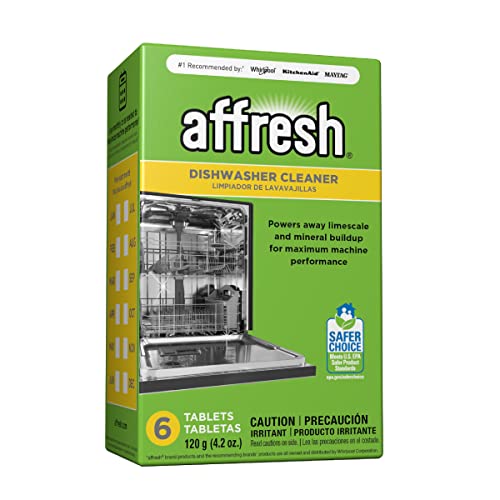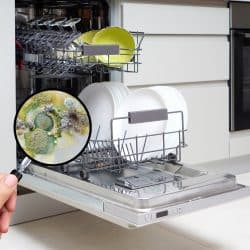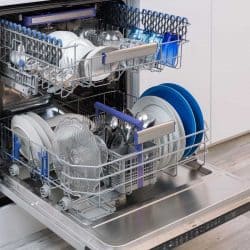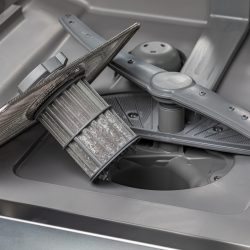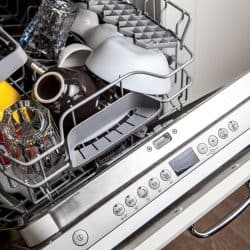Figuring out whether your appliances are still in good shape can be tricky sometimes. Do you want to use your dishwasher after not running it for a while but don't know if it will even turn on? For your convenience, we did the research to bring you the answer.
Your dishwasher will likely develop problems and break if not used. Unlike other appliances, dishwashers maintain their workability when you regularly use them, so it is essential to run them often.
As we begin, we will cover all things dishwashers and tag some helpful related products. Whether you haven't run your dishwasher in a while or find yourself running into constant issues with your appliance, we've got you covered. With that said, let's dive right into this post!

What Happens If You Don't Use The Dishwasher?
If you don't use your dishwasher for prolonged periods, expect motor issues, problems with your pipes, and even a broken machine. Your dishwasher's motor seals will often dry out first, leading to bigger issues with its ability to run or even pump water.
Typically, dishwashers need regular use to stay in good working condition and will start to deteriorate the less you run them.
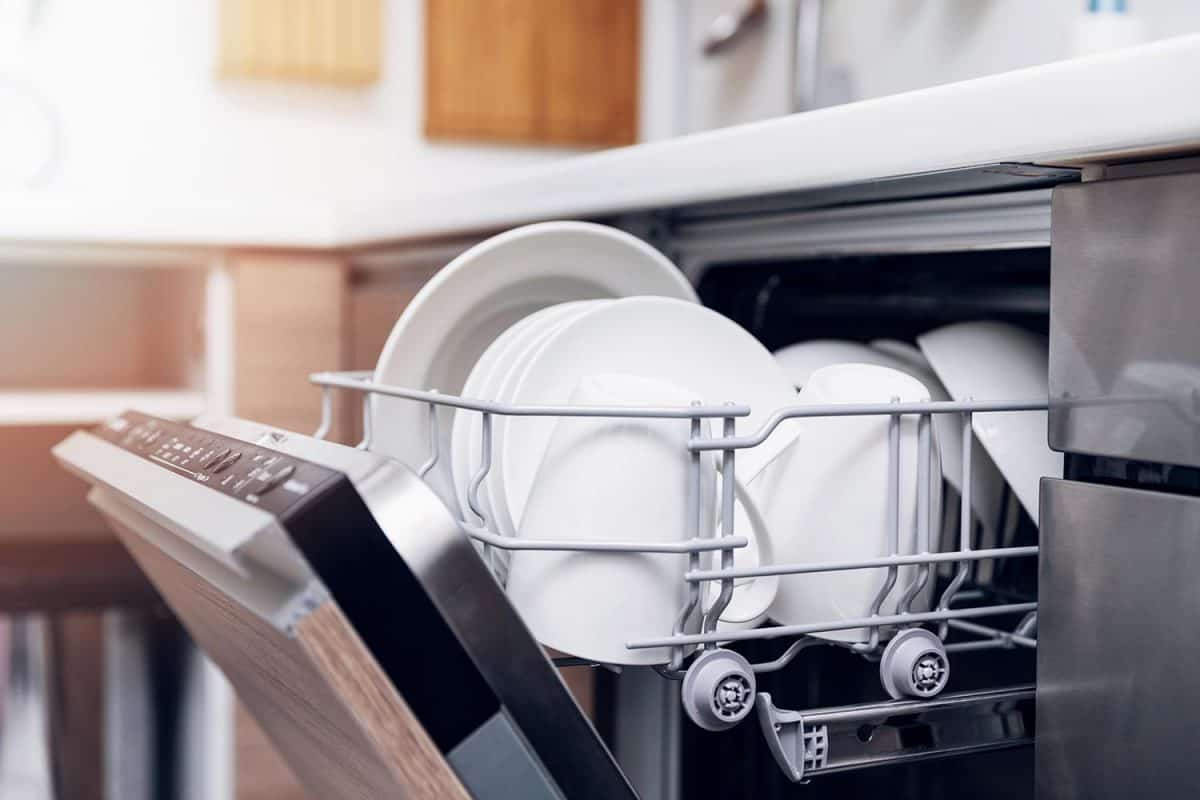
How Long Can A Dishwasher Be Left Unused?
When your dishwasher is left unused for more than a few weeks, this is when problems will start to begin. Usually, the longest time you can safely not use a dishwasher is a month before you might notice problems when you turn it on.
After a few weeks, we suggest pouring liquid bleach into your machine to kill any built-up bacteria. Another step to take is to add a few teaspoons of mineral oil into your dishwasher to prevent future evaporation.
Clorox Concentrated Liquid Bleach
This liquid bleach is 33% more concentrated than standard options, uses Cloromax technology, and comes in two 43 ounce bottles.
Follow this link to view them on Amazon.
Premium 100% Pure Food Grade Mineral Oil
This premium mineral oil is 100% food-grade, odorless, comes in a one-gallon container, and is made in the USA.
View this mineral oil on Amazon here.
Can You Use A Dishwasher That Hasn't Been Used In A While?
Depending on how long your dishwasher has been left unused, this will affect whether it is safe to turn it on. Generally, as long as it hasn't been more than a month, your appliance should be okay to run.
With that said, we do recommend throwing in a cleaning tablet or pouring liquid bleach into your dishwasher to kill any bacteria that might be lingering.
How Often Should You Use A Dishwasher?
You should run your dishwasher at least once per week to keep things working. Doing this will prevent your machine's motor seals from drying out and keep your dishwasher in good shape.
If you tend to travel often, try to run your dishwasher whenever you are home, even for a short cycle.
How Do You Clean An Unused Dishwasher?
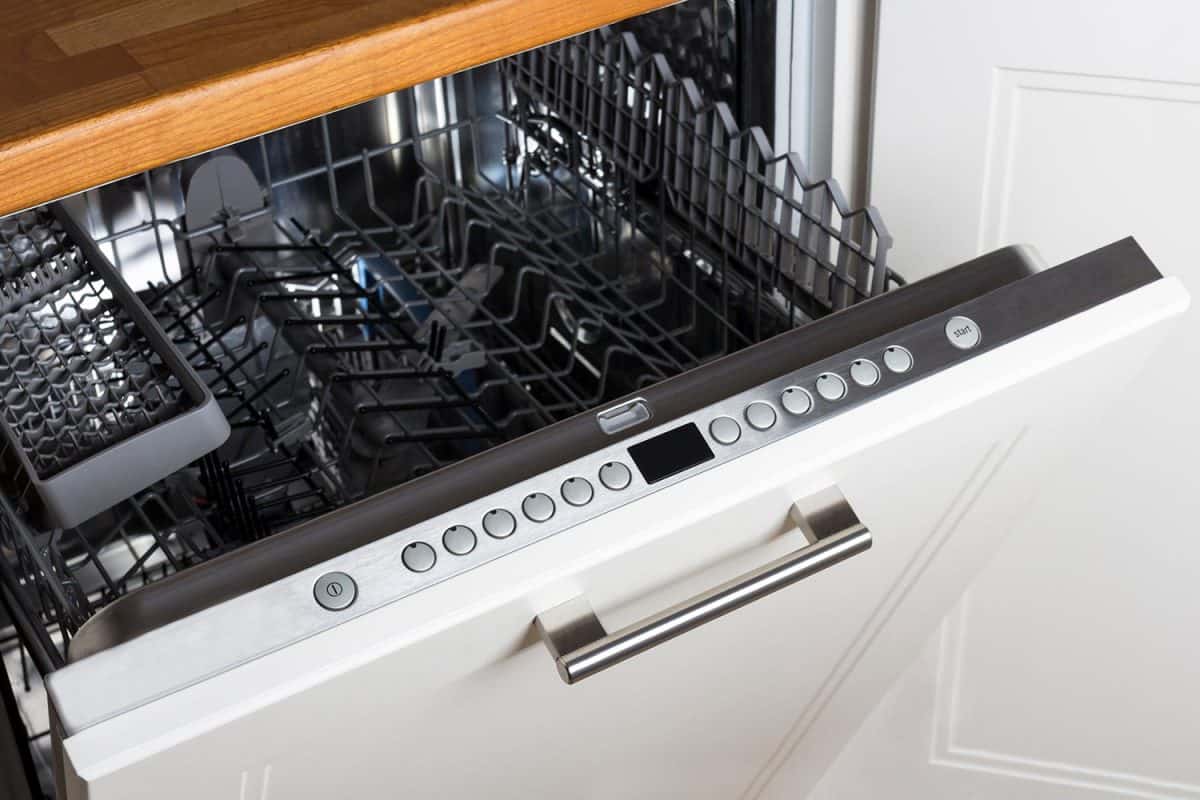
There are a few ways to get the job done when it comes to cleaning an unused dishwasher. If your machine is older, try filling a cup with white vinegar and running a cycle to break down any remaining food particles, grease, soap scum, and leftover grime.
Another way to clean an unused dishwasher is to remove the shelving from your appliance and run a cycle with bleach. Generally, regular upkeep will maintain a good working dishwasher and save you time and money in the long run.
Goya Distilled White Vinegar
This distilled white vinegar is kosher, gluten-free, and comes in a one-gallon container.
How Often Should You Clean Your Dishwasher?
Ideally, you should clean your dishwasher every few weeks or at least once per month. To do this, remove the bottom dish rack and check the drain for built-up food and grime.
Next, follow our previous white vinegar suggestion to give your dishwasher a complete clean. You can also throw in a bleach or dishwasher cleaning pod/tablet every few weeks between cycles if you don't have time to give your machine a monthly deep clean.
Affresh Dishwasher Cleaner Tablets
This six-pack of cleaning tablets powers away lime and mineral build-up, is safe to use on stainless steel and plastic dishwashers and is recognized as safe by the EPA.
Is It Safe To Use A Dishwasher That Hasn't Run In A While?
Although your dishwasher might run fine after months of not being used, that does not always mean it is clean or safe to do so. As we mentioned, bacteria will build up if you don't run your machine regularly, so you should clean it before placing any dishes inside.
In general, it is always a good idea to use an anti-bacterial dishwasher detergent and throw a cleaning pod into your machine every few weeks.
Finish Max in 1 Dishwashing Tablets
This pack of 78 detergent tablets powers away grease and dried-on food, prevents redeposits, and has a fast-acting bleach formula.
Click here to check it out on Amazon.
Can An Old Dishwasher Make You Sick?
For those with an older dishwasher, there is a chance it will make you sick as it ages. Usually, when a dishwasher gets older, its ability to rinse and clean dishes diminishes, which opens up the door for harmful pathogens to grow inside your machine.
As we mentioned, monthly cleaning will keep your dishwasher running smoothly and prevent harmful bacteria and fungi from growing inside your appliance and potentially making you sick.
Do Dishwashers Actually Clean Dishes?
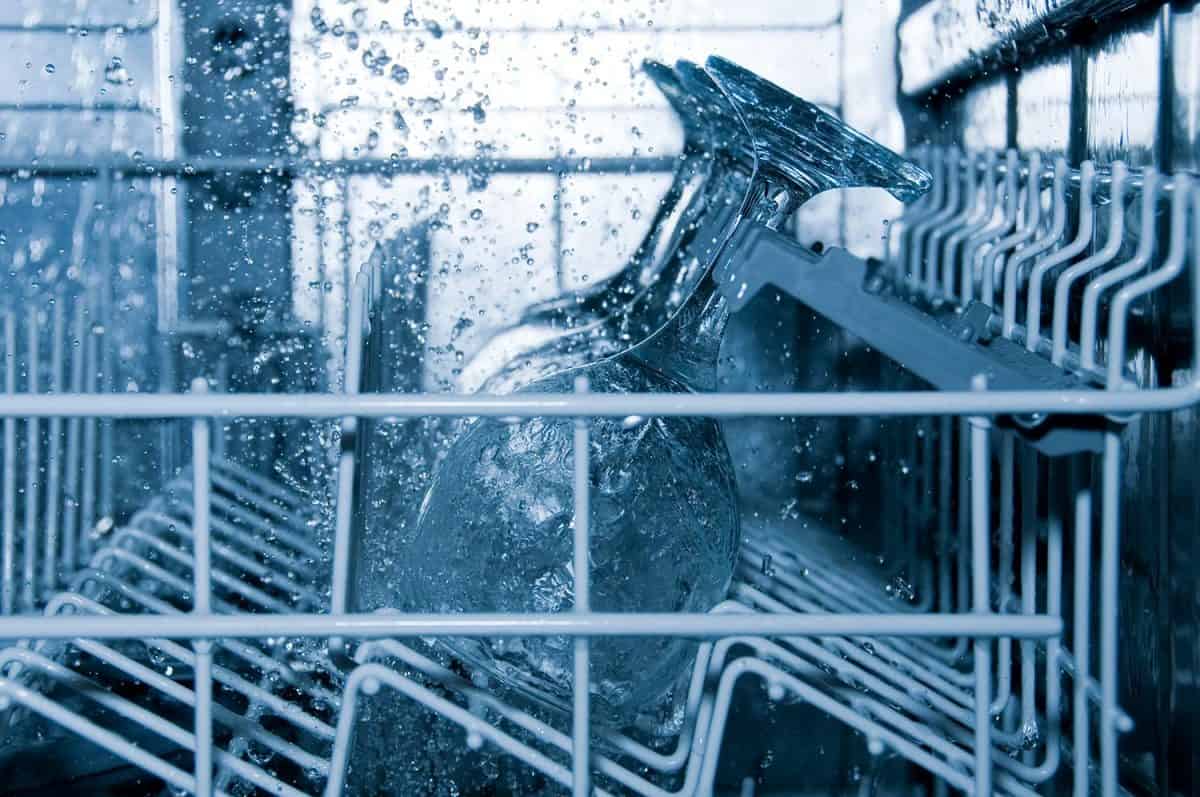
Although opinions vary, yes, dishwashers do actually clean your dishes. As long as your dishwasher is modern, you don't need to do more than scrape off any big pieces of food before putting your dish into the machine.
That said, even with a newer model, it is always a good idea to rinse off your dishes before putting them into the washer to prevent drain buildup.
Do Dishwashers Clean Better Than By Hand?
Regardless of how good you are at washing dishes, using a dishwasher is the more hygienic option. Between the two, using a machine will sanitize your dishes better than hand washing and clean off bacteria and other harmful pathogens.
Another reason to choose a dishwasher over hand washing is that water needs to be 140 degrees Fahrenheit to kill bacteria properly, which is not likely to happen if you decide to hand wash.
To Wrap Things Up
Whether you have a dishwasher you don't use or want to get one, it is essential to run it regularly. We found that dishwashers will develop issues if you don't run them often and eventually break if you leave them unused.
When cleaning, try to use white vinegar or bleach in your machine at least once per month. Another way to maintain your dishwasher is to throw in a cleaning pod or tablet between washes. Regardless, make sure to use your dishwasher at least once per week, and don't forget to check its drain every so often.
Made it to the end? Check out these super helpful kitchen-related posts below!
How To Reset A Kenmore Dishwasher [Elite, Ultra Wash, Quiet Gaurd Standard]
Can KitchenAid Attachments And Bowls Go In The Dishwasher?
Is A Blender Dishwasher Safe? [Including Top Brands]




